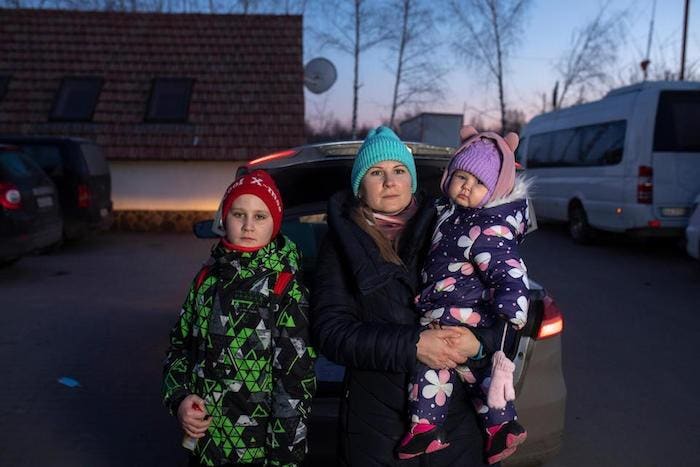UNICEF is expanding efforts to support the government on an inclusive, child-centered and sustainable recovery. A look at the results of emergency response efforts to date.
Results of UNICEF’s emergency response in and around Ukraine
Ukraine’s children and their families have endured 500 days of forced displacement, unthinkable loss and relentless violence. At least 535 children have been killed and at least 1,095 children injured since the war escalated in February 2022.
UNICEF is inside Ukraine and in refugee-hosting countries working with partners to meet urgent needs while also supporting system strengthening and recovery efforts — always putting children first.
Inside Ukraine, UNICEF teams are on the ground to provide, sustain and expand critical services in health care and immunization, nutrition, education, water and sanitation, and mental health and psychosocial support.
With funding from donors, working alongside partners, UNICEF has reached millions of people in need inside the country.
UNICEF also continues to work with governments and local authorities and partners in refugee-hosting countries to help strengthen their education, health and protection systems — not just to benefit Ukrainian refugee children but also vulnerable, marginalized children in the host communities.
Essential health care, safe water, education
So many of Ukraine’s kindergartens, schools, hospitals and critical water and energy systems have been damaged or destroyed by shelling, cutting off children’s access to education and health care and putting lives at risk.
Half of all children in Ukraine are struggling to learn, remotely or through a mix of online and in-person classes. Hundreds of thousands of the country’s preschool-age children have yet to set foot inside a classroom.
Since February 2022, UNICEF has:
- reached over 7.3 million children and women with essential primary health care, either in facilities, through mobile health teams or via other UNICEF-supported mechanisms
- helped nearly 5.6 million people inside Ukraine — plus another 118,625 people in countries hosting refugees — access safe water
- provided formal or non-formal education, including early learning, to over 3.2 million children in need
Mental health and psychosocial support
Nearly two-thirds of Ukraine’s children have been forced to flee their homes. Some have fled alone, exposing them to heightened risks of abuse, kidnapping, sexual exploitation and trafficking.
Grief, fear and anxiety from exposure to violence, the loss of loved ones, displacement and family separation are a fact of daily life, leaving children traumatized and struggling to cope.
Since February 2022, UNICEF has helped close to 3.5 million children and caregivers in Ukraine — and 1.7 million children and caregivers living in refugee host countries — access mental health and psychosocial support.
UNICEF depends on donors to help sustain and expand efforts to help the children of Ukraine
UNICEF relies on donor support to continue emergency relief and recovery efforts. Many refugees from the war remain without access to critical services and support. With long-term displacement comes anti-refugee sentiments that could fuel further exclusion and deprivation.
You can help. UNICEF responds to an average of 300 emergencies every year — assisting vulnerable children and families impacted by conflict, climate change, natural disasters and other crises. An unrestricted donation is the best way to help UNICEF expand its reach and increase its impact around the world. Donate today.
Read the full article here










